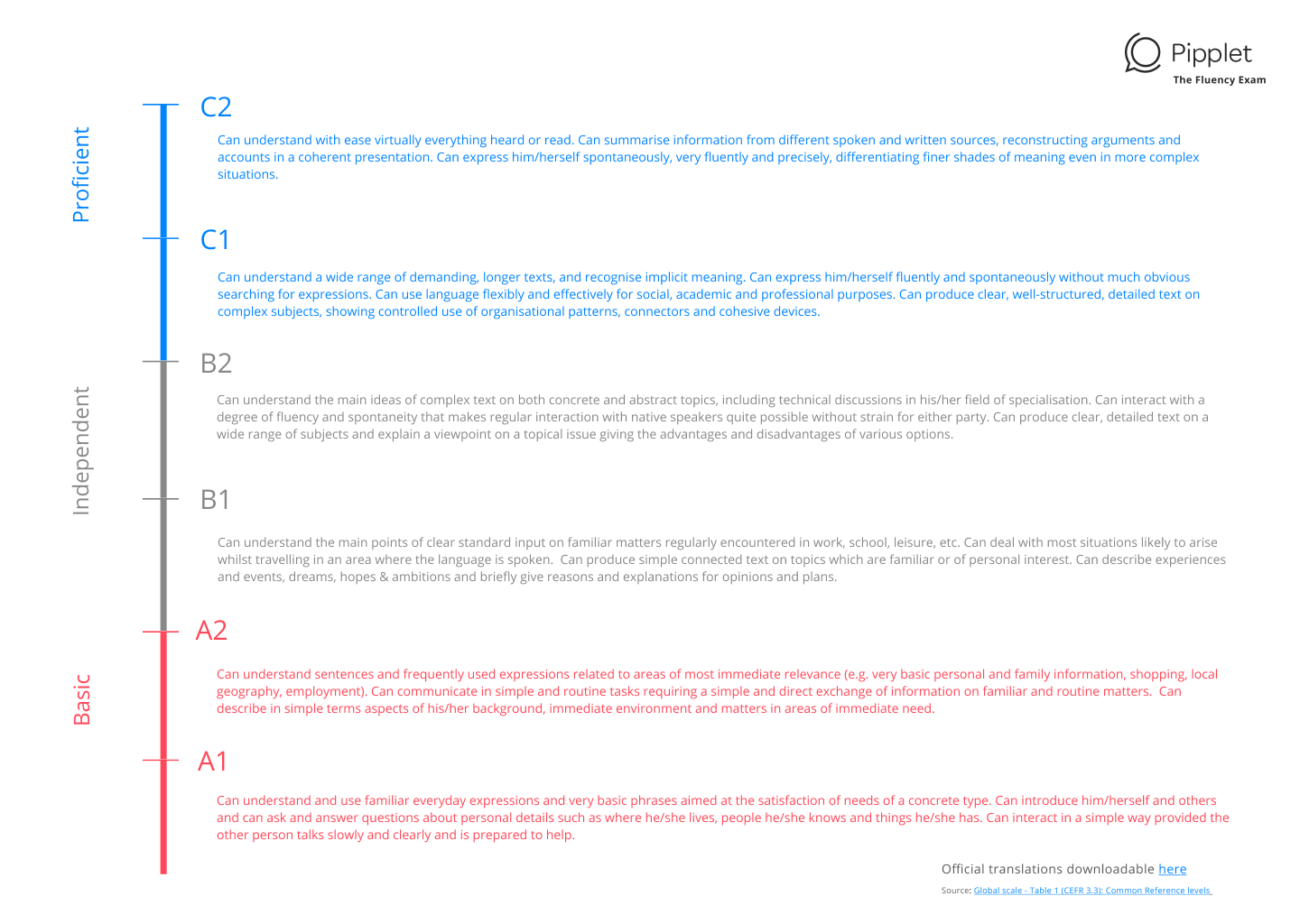Language Self-Assessment vs Professional Language Assessment
As a language student, it can sometimes be difficult to know your level of proficiency. As such, it’s then hard to know what areas you need to work on and where your strengths and weaknesses are. This becomes problematic if you’re looking for a role that requires language ability. An evaluation can help you identify your ability level, but should you choose a language self-assessment or a professional assessment? We take a look at the pros and cons of each.
Language self-assessment
When it comes to language testing, a self-assessment can be a convenient way of measuring your own abilities. There are several different types available, but they generally tend to give you ways of assessing your understanding, speaking, and writing skills. They provide a relatively clear structure, allowing you to identify and define areas where you excel as well as where you need to improve.
Pros
- Reflection. By reflecting on your abilities, you are encouraged to take responsibility for your learning. It gives you the chance to understand what it is you want to achieve from your language learning, as well as how far you are from reaching those goals.
- Critical thinking. Various studies have shown a link between self-assessment and improved critical thinking. Not only is this a valuable skill to learn, but it can also help expand your language abilities. It gives learners the confidence to express themselves in their new language.
- Skill development. By taking responsibility for your language review and reflecting on what you find easy and hard about a language, you can more accurately develop your skills. It gives you the insight needed to tailor your future learning approaches and set goals.
Cons
- Lacks comparison. With a language self-assessment, you don’t get the comprehensive comparison that comes with a professional test. Although there are some benchmarks you can identify, you can’t measure these against your peers. This also makes it difficult when applying for job roles that require language proficiency.
- Time-consuming. It often takes a lot of time and effort to analyze your own language abilities. If you’re lacking time or motivation, you might end up rushing your assessment and fail to thoroughly understand your skills.
- Subjective. People often have a tendency to either over or underestimate when it comes to self-assessment. As such, the results can often be subjective, hard to validate, and not necessarily that accurate.
Self-assessment CEFR scale
Professional language assessment
With a professional language assessment, learners can choose from a range of options. It gives you the chance to get a more structured and objective look at how you perform in certain areas. You often get feedback that is tailored to you.
Pros
- Professional validation. By taking a formal language test, you can be assured that a professional examiner will look at your performance. This means there’s far less room for error or self-bias, so your results are more accurate.
- Recognized qualification. If you’re applying for a job, a certificate such as a CEFR score gives a clear and accurate comparison of your skills. It’s a qualification that’s widely recognized and can be used in many different situations.
- Comprehensive feedback. A detailed report of your language performance can highlight some of your key strengths and weaknesses. As a result, you can more accurately set goals and focus on the skills that need work.
Cons
- Results can take time. With some professional language tests, you can have to wait several weeks to find out your results. As well as being frustrating, it can be inconvenient if you need your test scores for a job application. Thankfully, Pipplet’s language certification, you can get accurate results within 24 hours.
- Inconvenient. When it comes to language assessment, it can be an upheaval having to visit a test center. You have to take time out of your day and will likely have to travel to take the test. However, with Pipplet, you can take a professional language assessment from your own home, without having to make an appointment far in advance.
Language Self-Assessment vs Professional Language Assessment
Ultimately, a self-assessment is a good place to start with your language review. It can give you some useful pointers and help you reflect and think critically about your current level of ability. However, for a more detailed and standardized review, a professional language assessment such as Pipplet’s is a great option.
Related stories










